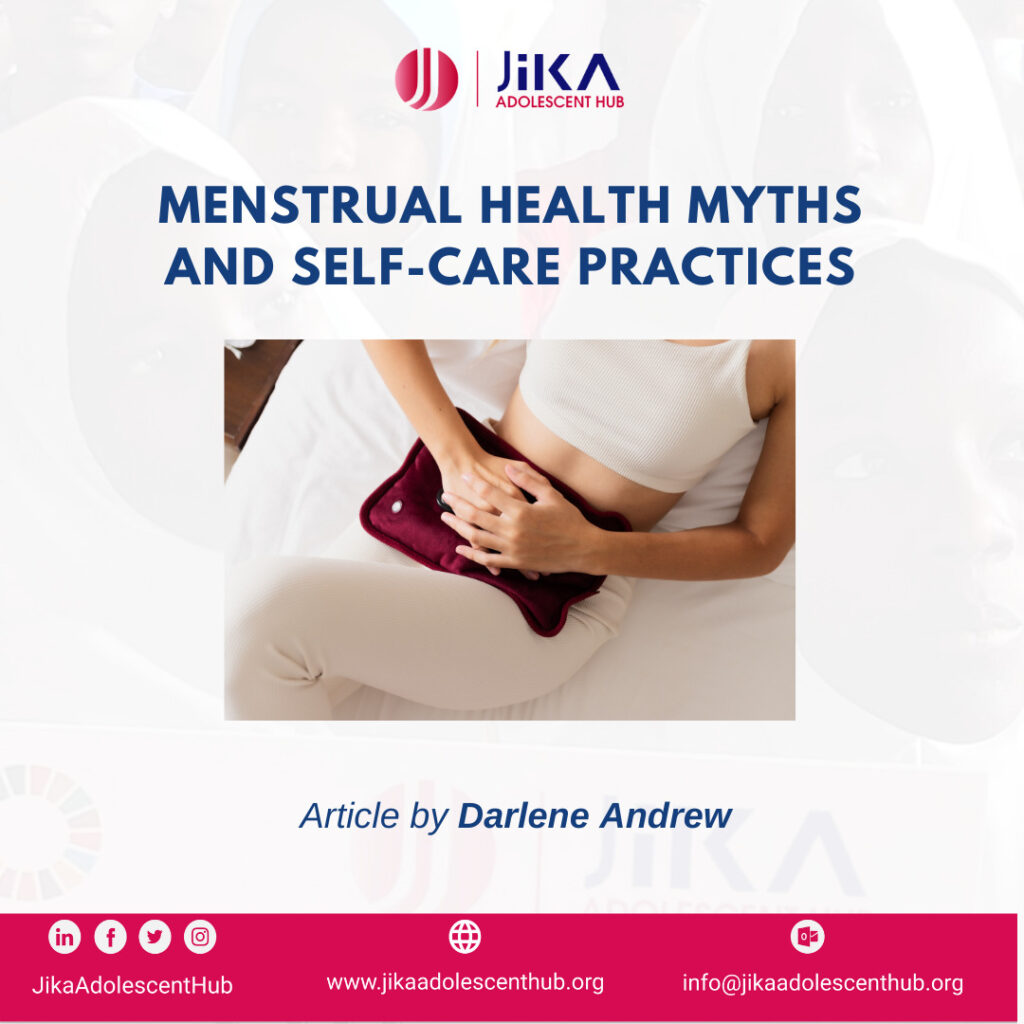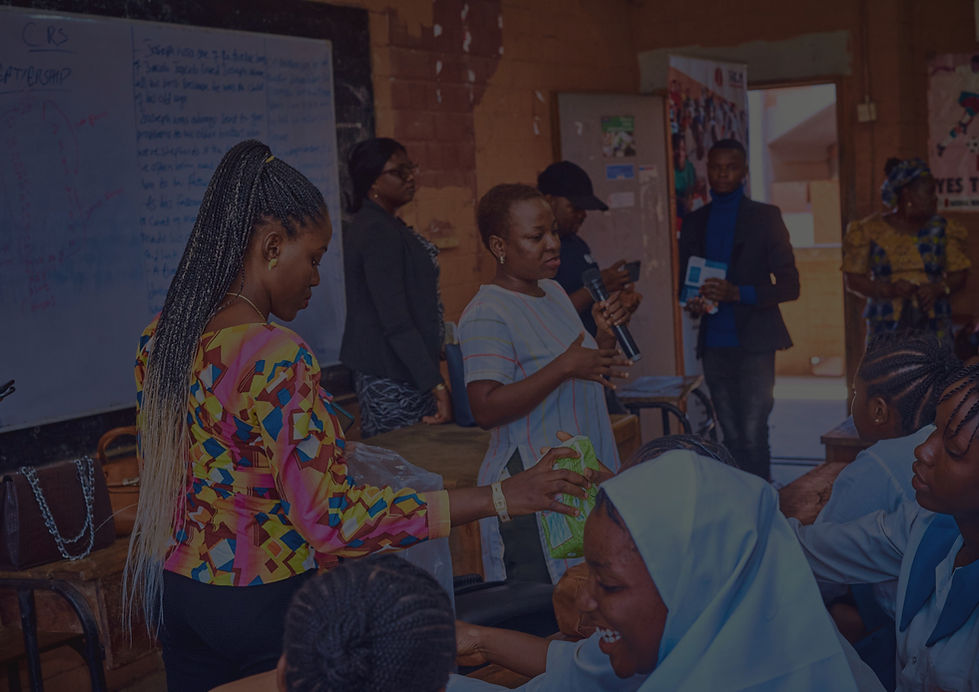If I came to you and asked you, “What do you understand the term menstrual health and hygiene to be?” Would you say it is access to safe and sanitary menstrual health products? Or the total well-being of an individual who goes through menstrual cycles? If your answer was one or both of these, you know what we are discussing. However, for many individuals, menstrual health and hygiene remain a complex and somewhat mysterious issue.
Let’s be honest: It is not the prettiest process and can make you wish it didn’t exist. However, the more we understand the relevance of this beautiful biological process, the better we will be at handling it with grace and kindness.
In this article, we’re going to unearth all the secrets, both told and untold, and discuss ways to promote a more comprehensive understanding of this crucial aspect of reproductive health. You’ll learn more about menstrual products, challenges, stigmas, misconceptions, and self-care practices.
Menstruation
Menstruation is the natural, periodic discharge of blood and tissue from the uterus in females of reproductive age, typically occurring every 21-35 days. It is a normal and essential part of the reproductive cycle, which plays a crucial role in preparing the body for a potential pregnancy. Some popular nicknames for menstruation around the world include: menses, Shark Week, Aunty Flo, Red Sea, Code Red, and Lady Business. These are euphemisms for “period”, which people use to avoid the discomfort of having to say “menstruating” out loud. A big part of menstrual health, especially emotionally, is owning your body and appreciating your period as an essential time for rest. It’s surely nothing to be ashamed of.
Menstrual Health and Hygiene
This is the physical, emotional, and social well-being of individuals who menstruate, with a focus on the prevention, diagnosis, and management of menstrual-related disorders, as well as the promotion of healthy menstrual practices, hygiene, and access to related resources. Some of these menstrual-related disorders include PCOS, endometriosis and dysmenorrhea.
Now that we know what it means, let’s discuss a major challenge that arises when it comes to managing menstruation, and this is access to safe and affordable menstrual products. Menstrual products are designed to absorb or collect menstrual blood during periods. These products include sanitary pads, pantyliners, period panties, tampons and menstrual cups. Which of these products do you prefer?
There is a persistent gap in sanitary pad access in Nigeria, which is exacerbated by wealth-related inequalities. This disparity is particularly evident in rural and low-income communities, where many resort to using improvised materials that can lead to infections and other health complications. A combination of product scarcity, high costs, and inadequate water creates barriers to menstrual hygiene management. Cultural stigma and lack of awareness surrounding this further compound these challenges, by preventing open discussions and policy interventions that could improve this access.
Some misconceptions about menstruation in Nigeria.
1. Menstruating women are unclean: Many view menstruation as a shameful and dirty process, leading to social exclusion and stigma. This perpetuates the notion that it’s something to be ashamed of and discreet about, when it is a relevant part of the reproductive system.
2. Menstruating women should not cook or participate in religious activities: This is more prevalent in rural communities, further pushing the narrative that it is an unclean period for a woman and she would not be involved in such activities.
3. Menstrual fluids can be used for black magic: This belief leads to the secretive disposal of menstrual materials. Common cultural disposal methods include burning, dismantling used pads and flushing. This not only pollutes the environment and blocks drainage but also creates fear.
4. You can’t get pregnant during menstruation: It is possible to get pregnant during menstruation, however, the chances are just lower.
In addition to addressing the systemic barriers to menstrual health, it is equally important to focus on individual self-care practices that can help alleviate discomfort and promote overall well-being. Prioritising self-care during menstruation greatly impacts your overall experience, especially when you know what’s best for your body. As a young teenager, it seems like all the symptoms creep up on you, it feels like all the painkillers don’t work, and as your calendar marks your period’s arrival, you’re filled with dread and unhappiness. This story can change if you begin to practice self-care earlier. So, what are some of these self-care practices?
1. Stay hydrated: Drink lots of water as it helps to minimise bloating and reduce fatigue.
2. Rest and relaxation: Prioritising sleep and having a calming bedtime routine helps to stabilise hormones
3. Gentle movement: Engaging in low-impact exercises like yoga, mobility stretches, and walking helps to boost mood and ease cramps.
4. Heat therapy: Using a hot water bottle, having a warm bath or taking hot water helps to relieve cramps and promote relaxation.
5. Nutritious diet: Focusing on iron-rich food and balanced meals helps to support blood replenishment and hormone balance. Having a low-sugar intake before and during your period can reduce the chances of menstrual cramps.
6. Massages: Practising gentle massaging eases tension and promotes body connection.
7. Herbal teas: several spices and herbs can alleviate menstrual cramps, such as ginger, cinnamon, turmeric and fennel seeds. Brewing teas from these commonly used spices can reduce inflammation and provide relief.
Self-care during menstruation is an ongoing journey of discovering what works best. Remember to be gentle with yourself and acknowledge that your needs may change from cycle to cycle. By implementing these practices consistently, you not only address physical discomfort but also nurture your emotional well-being. Normalising period care as part of your overall health routine empowers you to take control of your menstrual health, breaking down the stigma that often surrounds this natural process.
As we conclude this exploration of menstrual health and hygiene, it is clear that education stands at the forefront of change. By fostering open conversations about menstruation from an early age, choosing sustainable products when possible, and supporting menstrual health initiatives, we can dismantle harmful myths and normalise this natural process.
Remember that your voice matters in challenging outdated beliefs and practices.
For those who menstruate, embrace your journey with self-compassion. Your period is not a burden but a natural rhythm of your body deserving respect and care. By prioritising your menstrual health needs without shame or hesitation, you set an example that ripples outward, inspiring others to do the same.
The path to universal menstrual equity may be long, but every conversation, every policy change, and every act of self-care brings us closer to a world where menstruation is understood, respected, and properly supported. Together, we can transform menstrual health from a whispered topic to an empowering aspect of a holistic well-being period.
Reference
Kiran, E., & Raju, M. (2024). An observational study on menstrual hygiene practices among adolescent girls attending Zilla Parishad High School at Kommadi village in Visakhapatnam. Indian Journal of Forensic and Community Medicine. https://doi.org/10.18231/j.ijfcm.2024.024.
Written by Darlene Andrew




